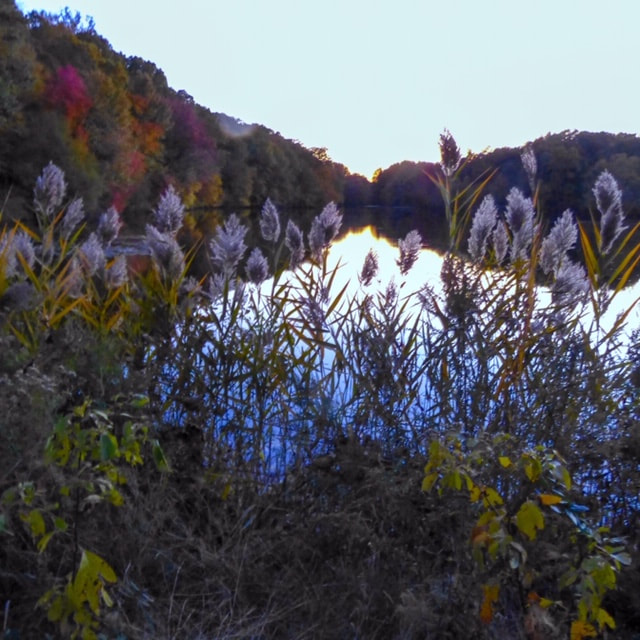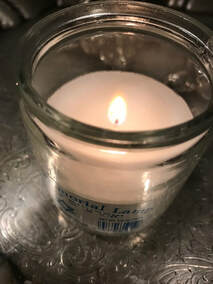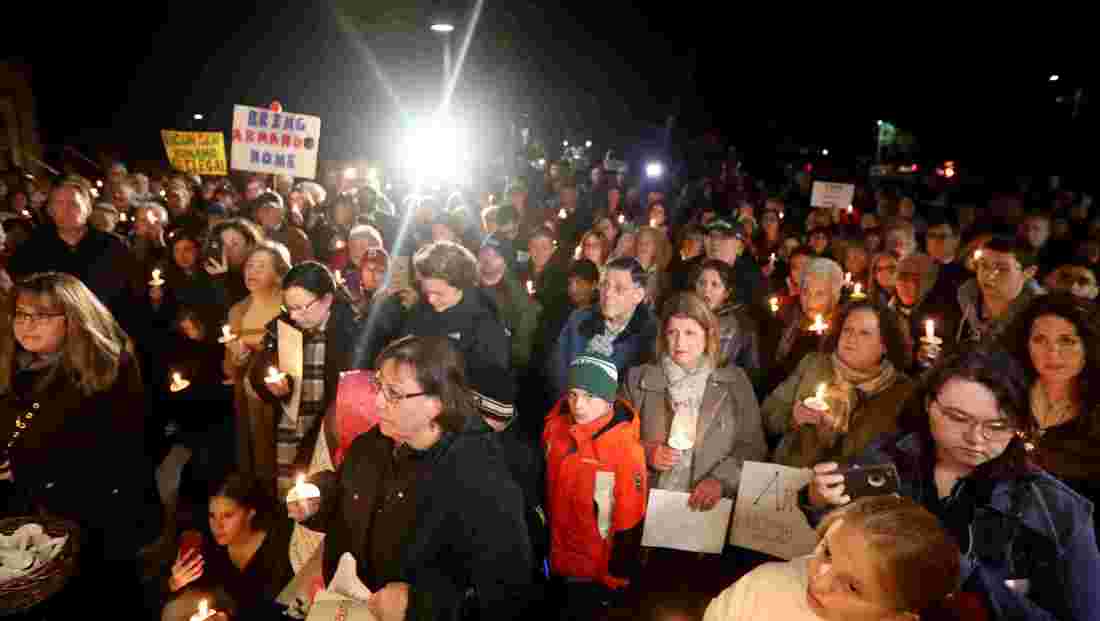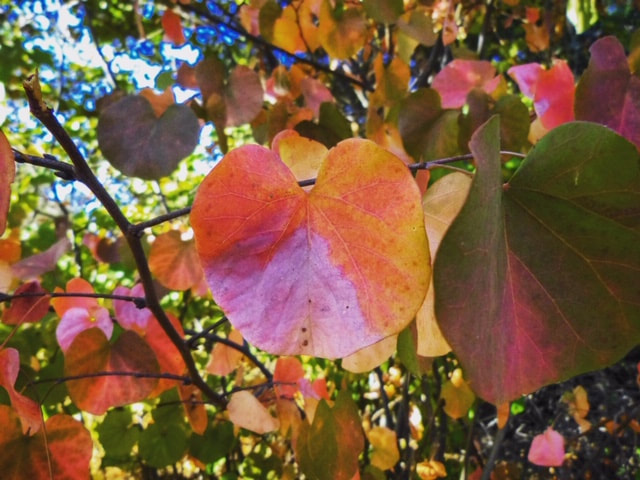 Yea, though I walk through the valley of the shadow. . .(Psalm 23), photo by Julie Danan Yea, though I walk through the valley of the shadow. . .(Psalm 23), photo by Julie Danan Dear Community, The days since Shabbat have been a time of sadness: vigils around the country, listening to members talk about their grief and fear, their love and respect for the holiness of synagogue and community. As we are drawn into the next Shabbat, it is different from most. It's a time of shivah, of mourning for our 11 fellow Jews who were murdered doing what we love to do in our own community: gathering for Shabbat fellowship, prayer, and Torah. It's a time of mourning for their precious families and their shattered community, both the three congregations that meet under one roof - Tree of Life, New Light, and Dor Hadash - and the larger Jewish community that centers around the normally peaceful neighborhood of Squirrel Hill. It's a time of mourning and loss for Jews all over America and worldwide, because we are all one family. Grief may combine with shock and fear. We are shocked that this anti-Semitic massacre has happened here in America, the worst attack on Jews on American soil. Unfortunately many are not so shocked that another mass shooting has happened, because such events have become a terrible and unhealed part of American culture. I think that the first thing that we should do is to support one another and not succumb to divisiveness because we focus on this or that aspect of the whole picture. As Rabbi Menachem Creditor, Scholar in Residence of UJA-Federation wrote, "Some see this as primarily an expression of anti-Semitism, which it is. Others also understand this in the context of American gun violence and white supremacy, which not only affects Jews." Indeed, it is both of those things and both must be addressed. Recognizing one does not diminish the importance of the other. One of our congregants asked me, how do we go forward now? I turn back to the words of Hillel that we studied last year on the High Holidays: "If I am not for myself, who will be for me? If I am only for myself, what am I? And if not now, when?" We go forward by combating anti-Semitism, continuing to do the things that our community learned to do after the Holocaust, and supporting the organizations that are experts in doing them. The long-term, unglamorous work that groups like the AJC, ADL, and United States Holocaust Museum have done to build coalitions and raise awareness bears results and deserves our support. We go forward by working for connection and tolerance in a time of deep division. I continue to affirm that we can only be for ourselves as Jews in America of 2018 when we realize that we are interconnected with the rest of society, and in particular with other minority groups (being aware our own Jewish population is racially and ethnically diverse). The current rise in hatred, xenophobia and intolerance hurts all of us. It is not just a matter of enlightened self-interest. The Torah demands the mitzvot to love our neighbor, love the stranger, and pursue justice. That’s why we see Jewish groups and individuals so engaged in civil and immigrant rights, and forming new alliances with other minority groups, notably those with Muslim Americans. These alliances have born fruit as Jewish communities have been surrounded by loving neighbors during this time of trial, including Musim Americans who raised money to help Jewish victims. As Professor Sarah Tauber told me, Hillel’s famous saying, encompassing being for ourselves and for others, “is not a segregation model or a zero-sum. Racists say the opposite of Hillel: ‘If I am for others, I lose.’ Jewish tradition is the anti-zero sum. If we are for others, we are for ourselves as well.” Finally, we go forward by being proud, active, and engaged Jews. Terrorists, whatever their stripe, aim to make us cower with fear and avoid life. Thanks to the UJA-Federation for declaring a Solidarity Shabbat, and the AJC for starting #ShowUpForShabbat campaign, not just this week but every week. Read More To quote Rev. Dr. Martin Luther King, Jr: "Darkness cannot drive out darkness; only light can do that. Hate cannot drive out hate; only love can do that." In this week's Torah portion, we read that Abraham mourns the death of his wife, Sarah. He mourns and cries, but then he turns to finding a wife for Isaac and ensuring the next generation. That is the Jewish way: to feel the grief, to express our pain, and then to choose life and to take the actions that affirm life and love. With love and support, Rabbi Julie H. Danan
4 Comments
 This morning at PCS we gathered with a small group for Shabbat morning prayer and study. It was a beautiful and spiritual morning and some of us stayed late for our study session on Tikkun Olam, repairing the world. As I got ready to leave, I saw text messages about the horrible attack at Tree of Life Congregation in the Squirrel Hill neighborhood of Pittsburgh. As we prayed in Pleasantville, eleven of our fellow Jews had been murdered in their own congregational home by a gunman who shouted antisemitic hatred. Others, including police officers, were seriously wounded. The attacker had recently posted on social media of his hatred for HIAS, the Jewish organization that sponsored last week's national Refugee Shabbat. As those of us still at PCS got this dreadful news, we gathered in front of the open ark for a prayer. Together with our synagogue president, Leyla Nakisbendi, I offer deepest condolences and healing and support to the community in Pittsburgh and to all of Am Yisrael. Please join us Sunday morning, October 28, at promptly at 9:15 for a short vigil of prayer and mutual support during Hebrew School. Grades K-6 will be dismissed to their rooms from morning prayers and the B'nei Mitzvah class, parents, and any interested PCS members are encouraged to remain for a short memorial prayer, 9:15-9:30am. If you want to stay after that in the company of our community, there will be a space in the back room for you to visit with one another. (Those who arrive after 9:15 will need to go to the back door and ring the bell, as we are continuing to keep doors locked during Hebrew School.) We are also attentive to security for our own PCS community. Pleasantville Police Department will add special attention to our synagogue to their patrol, and we are planning an additional security review to those we have already conducted. Prayers offer us comfort and a way to connect to God and community at this difficult time. But after we pray we must also act, to oppose the current rise in hatred and inflammatory speech, defamation and irresponsible verbal violence that leads to physical violence. This terrible antisemitic crime, perpetrated with firearms, is also the latest in our scourge of mass shootings. Unless we can come together to take action about the plague of gun violence, there will be no place of sanctuary left in our schools, businesses, places of recreation or houses of worship. For those who eschew guns as well as those who embrace their rights as responsible gun owners, I implore all of us to get together and work for sensible laws such as those promoted by Everytown for Gun Safety: https://everytown.org/ . May God comfort all those who have lost loved ones in this devastating event. With blessings of healing and peace, Rabbi Julie Hilton Danan Leyla Nakisbendi, PCS President  Vigil for Armando Rojas, Bet Torah custodian facing deportation. Photo: Seth Harrison Vigil for Armando Rojas, Bet Torah custodian facing deportation. Photo: Seth Harrison Shalom! I'm back blogging after a post-holiday break to travel to California. I'm very excited to share about my trip, but first feel it's important to post about a couple of national and world issues that I find reflected in this week's and last week's Torah portion. I'll start with this week, Parashat Lech Lecha. HIAS (the Hebrew Immigrant Aid Society), has invited congregations around the country to mark a Refugee Shabbat, and PCS will be among them. As we read the Torah portion about how our earliest ancestor was a Hebrew, literally one who crossed over "from someplace else," it's a good time to recall the Torah's preoccupation with the well-being of the stranger and refugee. We also remember the long Jewish history of being immigrants and sometimes outcasts, including at our darkest hour of the Holocaust, when even good countries like the USA turned away Jewish Refugees from the Nazis. Today there are some 65 million refugees and displaced persons worldwide, and our country could do so much more to alleviate their plight, but in fact we are going the opposite direction and raising the barriers. On Yom Kippur we heard from Evan Kingsley about our local organization, PART One, through which members of our PCS community and of B'nei Yisrael in Armonk, are helping to resettle refugee families. The families include individuals who helped the United States during wars abroad in their own countries and now seek safety with us. On the broader subject of immigration, last night I participated with several other local rabbis in offering a prayer at a vigil on the steps of Congregation Bet Torah in Mt. Kisco. A couple of hundred people had gathered to light candles, speak up, and pray for the return home of Armando Rojas, a Mexican immigrant who has lived in the USA for 30 years and worked as custodian of the synagogue for much of that. Armando is not a refugee and he did come into the USA without documentation, as an 18 year old leaving a dangerous environment where family members had been murdered. After 30 years as an exemplary member of the community, with a wife and two sons who are American citizens, he has suddenly been separated from his family and faces permanent deportation. (Read more details in a letter from Rabbi Aaron Brusso). It's true that Armando long ago violated U.S. immigration law by coming here as he did. But since then he has lived an admirable life as a kind, responsible, and contributing member of the community. In Judaism we have two concepts: Din and Hessed. Din means that you adhere only to the strict letter of the law, while Hessed means that humanity and compassion play a part. Recently, the Din of immigration law was also tempered by the Hessed of an individual's circumstances, and hard working, peaceful, contributing people like Armando were not a priority for deportation. It feels so cruel to the family of this gentle person to have to face permanent separation from their husband and father. To me it is part of a disturbing trend of nativism, that is coming just at a time when there are so many people in the world who need a home. As a Jew, when I see any ethnic group or nationality being targeted with words and harsh policies lacking in Hessed, I know that I have to care, because the Torah reminds us (36 times) to know the heart of the stranger/immigrant/refugee or to love and care for them, because we were in that person in the Land of Egypt. Not to mention that a society where nativism and xenophobia prevail is not a healthy one for the Jewish community. That's why I have emphasized the issues of refugees and immigrants in so many sermons and Tikkun Olam projects. In this case it is very personal and comes close to home. If you want to support Bet Torah, follow the link I provided above to their rabbi's letter to the community. |
AuthorFormer PCS Rabbi Julie Hilton Danan shares her thoughts (and some original photos) and invites your comments. Archives
June 2021
Categories |
Pleasantville Community Synagogue - 219 Bedford Road - Pleasantville, NY 10570
Office: (914) 769-2672
Email: [email protected]
The PCS office is open Tuesday to Friday, 10 am to 3 pm.
Office: (914) 769-2672
Email: [email protected]
The PCS office is open Tuesday to Friday, 10 am to 3 pm.


 RSS Feed
RSS Feed